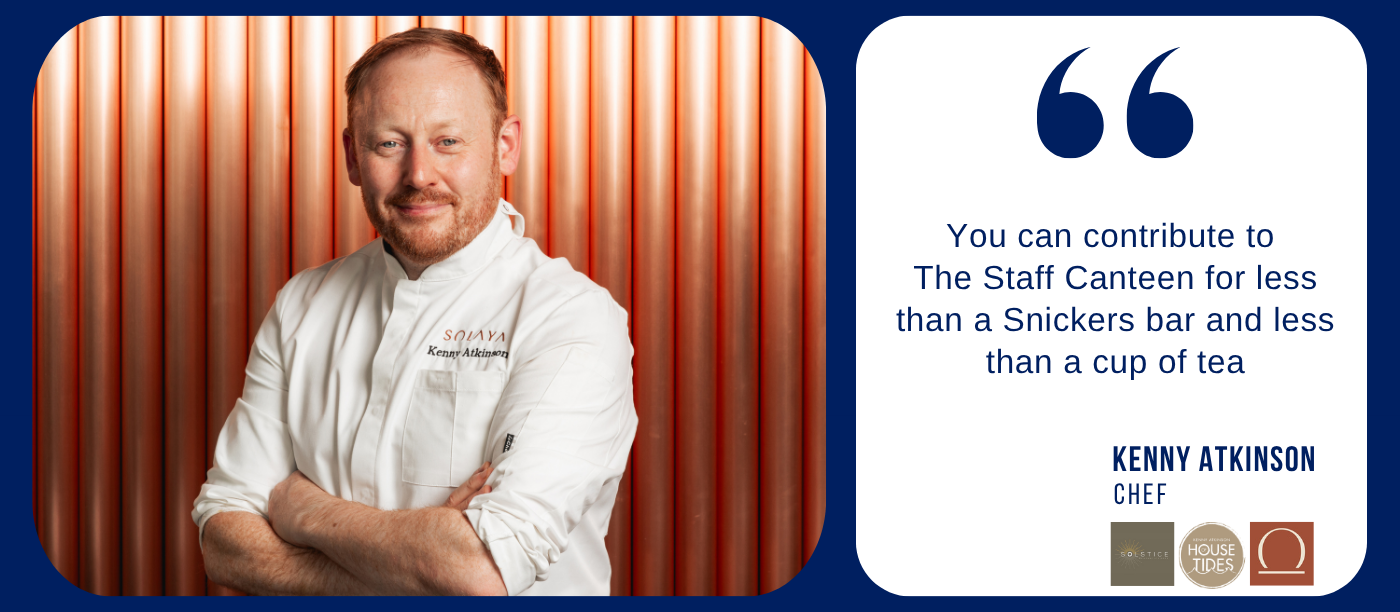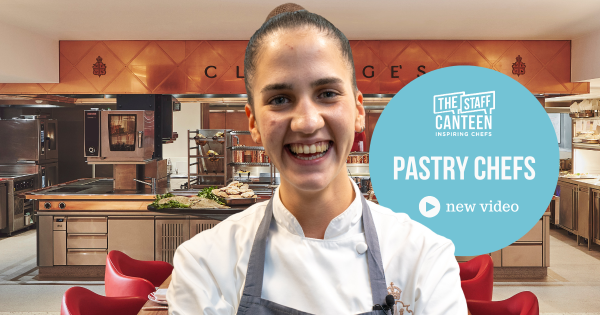east of France where I lived at the time.

I went from making 100 cakes a day to making 900 cakes a day and getting to use machines I hadn’t worked with before. I also had a chance to work with Franck Daubos in Versailles who taught me the artistic part of the job – in France he is quite famous (I call him my spiritual father!!). I stayed there for over 4 years and I was more mature so I started putting my personality into the cakes I was making. He gave me a lot of freedom to develop new recipes and new designs. This gave me the incentive to start and compete more seriously.
Talking about competitions, you recently won the UK Pastry Open and became a member of the UK Coupe de Monde team. Was that a goal of yours?
When I compete, the only reason to do it is to learn and push myself. It pushes the limits of what you can do. The glory that comes from winning I really don’t care – but it’s good for my mum! At Nestle we have four different kitchens so I can practise in different environments with different moistures/temperatures – I get to try different conditions which is good as you never know what it is going to be on the day.
The Coupe De Monde has always been a dream, just six months into my apprenticeship I was dreaming about being there and competing. It was a step by step approach, I did a lot of competitions to grow my artistic skills. I have told my wife for the past four competitions that it would be the last one! But this time I believe it isJ.
When you enter a competition do you have in your head what you want to create from the beginning?
No – it started with a big mess! The first structure I made took me an hour to make and three hours to clean the floor! It broke into thousands of pieces and there was sugar everywhere.
 Is it nerve wracking on the day of the final?
Is it nerve wracking on the day of the final?
Not really, I knew I would do my best but didn’t think it would be enough! I would have enjoyed it more if it would have been dryer but the humidity in the air was terrible and the sugar got extremely sticky.
But I still enjoyed it, I was full of excitement on the day and I like the atmosphere of a live competition. I didn’t expect to win, I did it to learn, but everything that has happened after winning is amazing and a bonus – it took me a few days to realise what was happening to me!
It’s exciting to be part of the team representing the UK at Coupe de Monde?
It is, exciting is an understatement! We want the UK to be seen as one of the best countries in the world in terms of pastry and we’ll do everything possible to show that!
Have you got any advice to give to young Pastry chefs ?
Yes, I would advise to learn the basics very well first. I see young chefs, not just in the UK, in France as well, they come into the job and they see their head chef making showpieces and they want to get there straight away.
So you then see people after two years in there apprenticeship being able to do amazing sugar sculptures and chocolate show pieces but they don’t know how to make a proper millefeuilles or a choux dough- if a ganache splits they don’t know why and for me that’s a problem. Mastering all the basic techniques is actually more difficult than making a showpiece.
 What made you leave France and how have you ended up in Yorkshire?
What made you leave France and how have you ended up in Yorkshire?
I felt it was time to do something else. I put my CV online and I did a two day interview at the Nestle Product Technology Centre here in York and they offered me the job. I felt it was something completely different which was worth exploring and seven years on, and I’m still here!
I enjoy the fact that I’m working with experts in all fields – so if I have question about chocolate crystallization there are people who dedicate their lives to studying this in detail. So we have chemists and lab analysists, kitchen specialists, designers all in the building. We can produce pretty much anything you can think of, here.
You enjoy your role at Nestle then?
Every day is different and we work on a lot of different products from biscuits, chocolate to sugar products and gummies. We go quite in depth with the formulation so there is a lot to learn. I’m still learning and that’s why I’m still here. Recipes are specific to products and to countries as well – if you develop a product for Brazil it’s going to be completely different than say for China.
It’s similar to an artisanal kitchen, you start with a 50g recipe but then you end up with an 8 tonne batch ready to go to a factory.

In the confectioner team we have a lot of different experiences, so I come from an artisanal background, some come with factory experience and then there is John Costello who is similar to me and we work really well together – there is not one hour where we don’t speak about pastry and competitions and we probably piss the rest of the team off actually!!!
And your plans for the future?
I will definitely have my own shop at some point and probably in the UK, I don’t think I’ll ever go back to France I love it here. And I think there is an opportunity for a great pastry shop in York but who knows?



 Is it fair to say the French have a completely different relationship with pastry than here in the UK?
It’s a different culture. In France there are many more pastry shops and people go there each morning and get their fresh bread and they usually get a pastry too.
For example, Christmas is the time I would be working 20 hours a day! I used to work on Christmas day because people will wake up and get there fresh log to eat that day. Everything in the UK is closed on Christmas day and this also applies to France… apart from the pastry shops!
Do you think this is changing in the UK?
Yes definitely. Starting in London and the big cities you can see more and more fine pastry and it’s going the right way. But there is still a culture of “eating to get fed”. Most people, certainly in Yorkshire, they want a lot for their money regardless of the quality of the product sometime. In France you get a cake because you want to taste something nice, we don’t really care about the size of the portion as long as it taste amazing and fresh.
Is it fair to say the French have a completely different relationship with pastry than here in the UK?
It’s a different culture. In France there are many more pastry shops and people go there each morning and get their fresh bread and they usually get a pastry too.
For example, Christmas is the time I would be working 20 hours a day! I used to work on Christmas day because people will wake up and get there fresh log to eat that day. Everything in the UK is closed on Christmas day and this also applies to France… apart from the pastry shops!
Do you think this is changing in the UK?
Yes definitely. Starting in London and the big cities you can see more and more fine pastry and it’s going the right way. But there is still a culture of “eating to get fed”. Most people, certainly in Yorkshire, they want a lot for their money regardless of the quality of the product sometime. In France you get a cake because you want to taste something nice, we don’t really care about the size of the portion as long as it taste amazing and fresh.
















